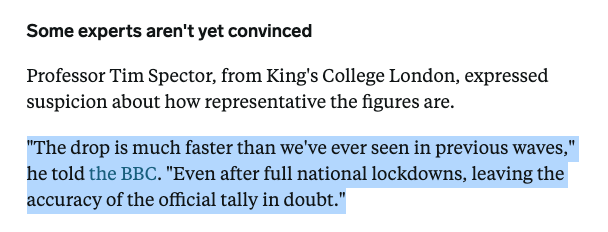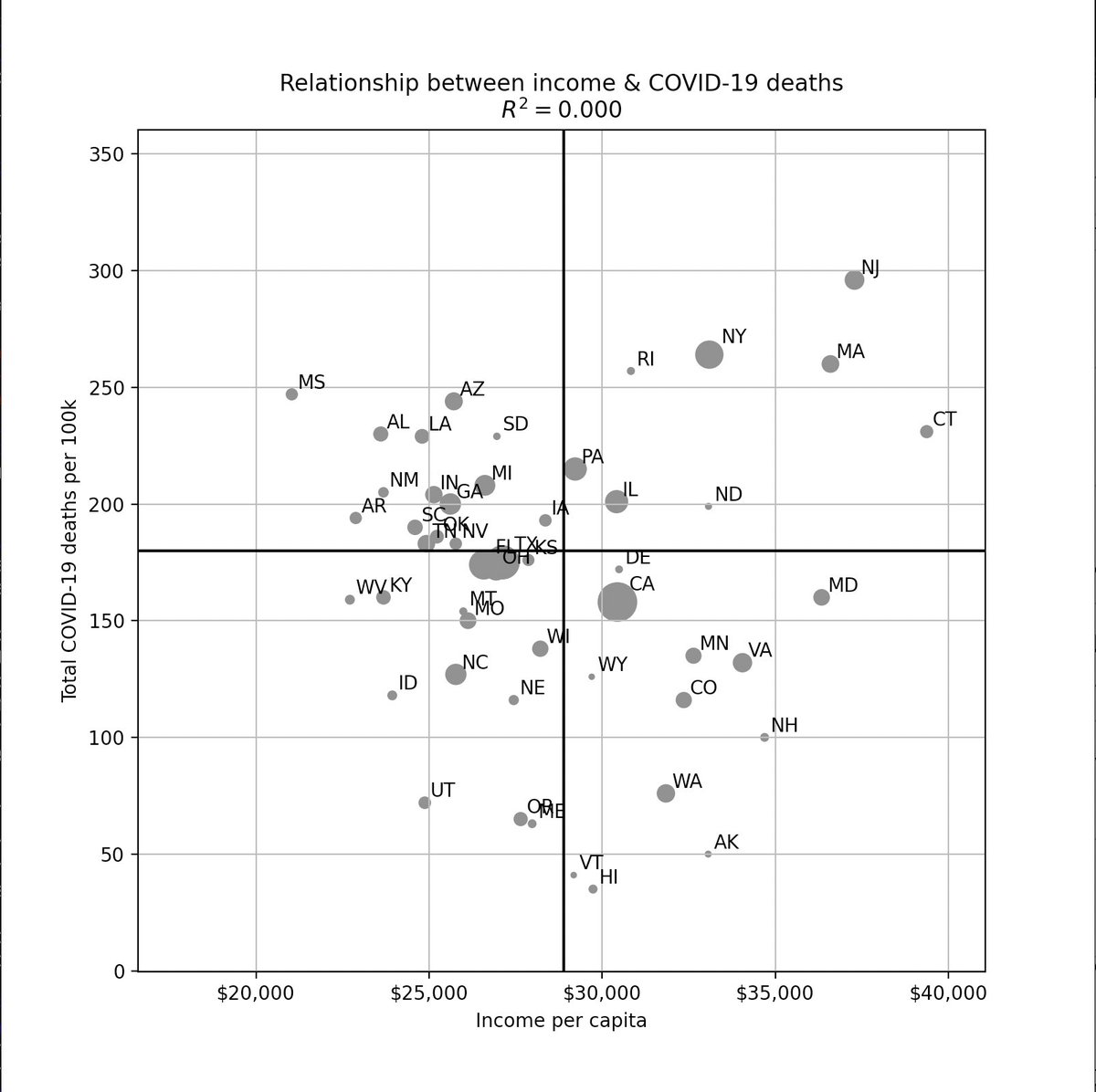9/15 Weekly covid19-projections.com Update:
We forecast 24,000 (13-39k) additional reported deaths in the US by November 1 (~500/day).
Nov 1 Total Deaths Forecasts:
Today: 219k (208-233k)
Last week: 219k (207-236k)
2 weeks ago: 219k (205-240k)
4 weeks ago: 225k (203-255k)
We forecast 24,000 (13-39k) additional reported deaths in the US by November 1 (~500/day).
Nov 1 Total Deaths Forecasts:
Today: 219k (208-233k)
Last week: 219k (207-236k)
2 weeks ago: 219k (205-240k)
4 weeks ago: 225k (203-255k)
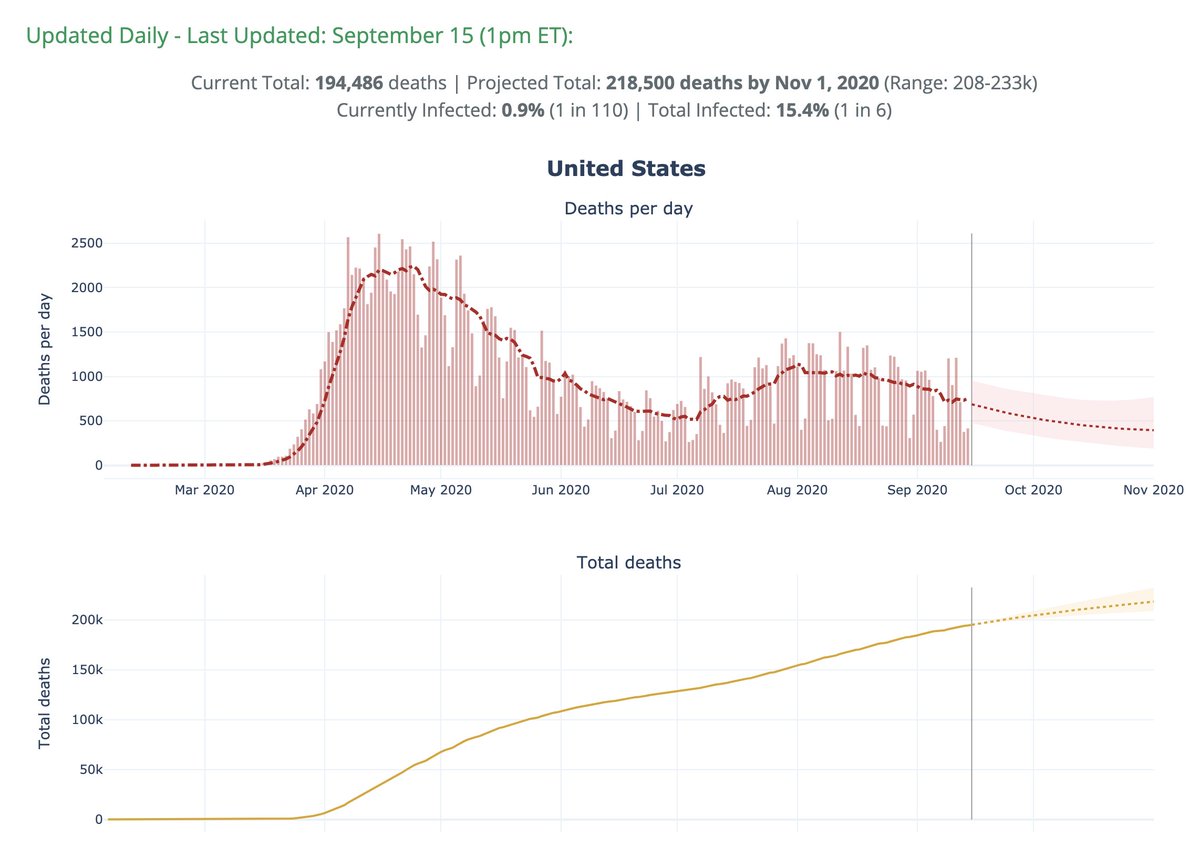
The 7-day average for deaths increased yesterday and will spike up today due to the Labor Day effects.
But there is no cause for alarm.
The average should fall again starting on Wednesday and we'll likely reach an average of around 750 deaths per day by the weekend.
But there is no cause for alarm.
The average should fall again starting on Wednesday and we'll likely reach an average of around 750 deaths per day by the weekend.
It's possible that cases may flatten over the next few weeks, while the test positivity and hospitalizations continue to decrease.
We expect the downward trend in deaths to continue.
Reporting delay for deaths may be peaking in states like Florida:
We expect the downward trend in deaths to continue.
Reporting delay for deaths may be peaking in states like Florida:
https://twitter.com/scottdavidherr/status/1305909937873313797
Here is how our US daily deaths forecasts from 3 weeks ago have done thus far, compared with the most-cited model in the media.
20 days in, the true results have already fallen out of the confidence interval of the IHME model. They are now projecting out until 2021 (108 days).
20 days in, the true results have already fallen out of the confidence interval of the IHME model. They are now projecting out until 2021 (108 days).
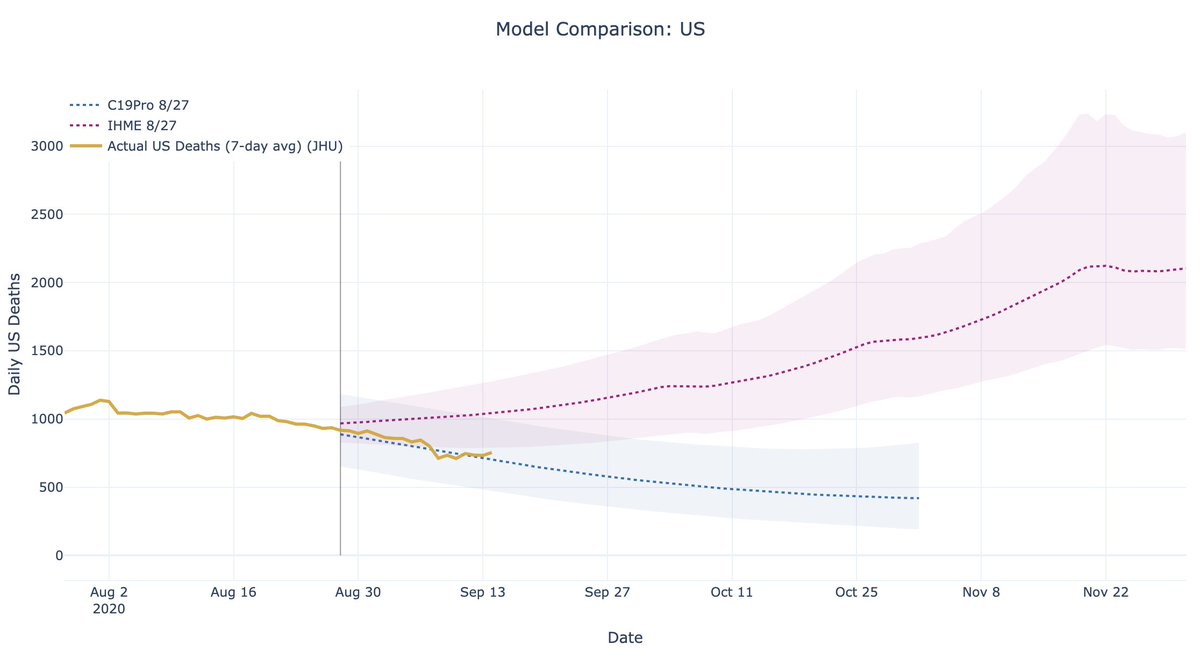
According to our most recent evaluation, covid19-projections.com continues to be a top-performing model.
You can find more evaluations, methodology and plots here: covid19-projections.com/about/#histori…

You can find more evaluations, methodology and plots here: covid19-projections.com/about/#histori…
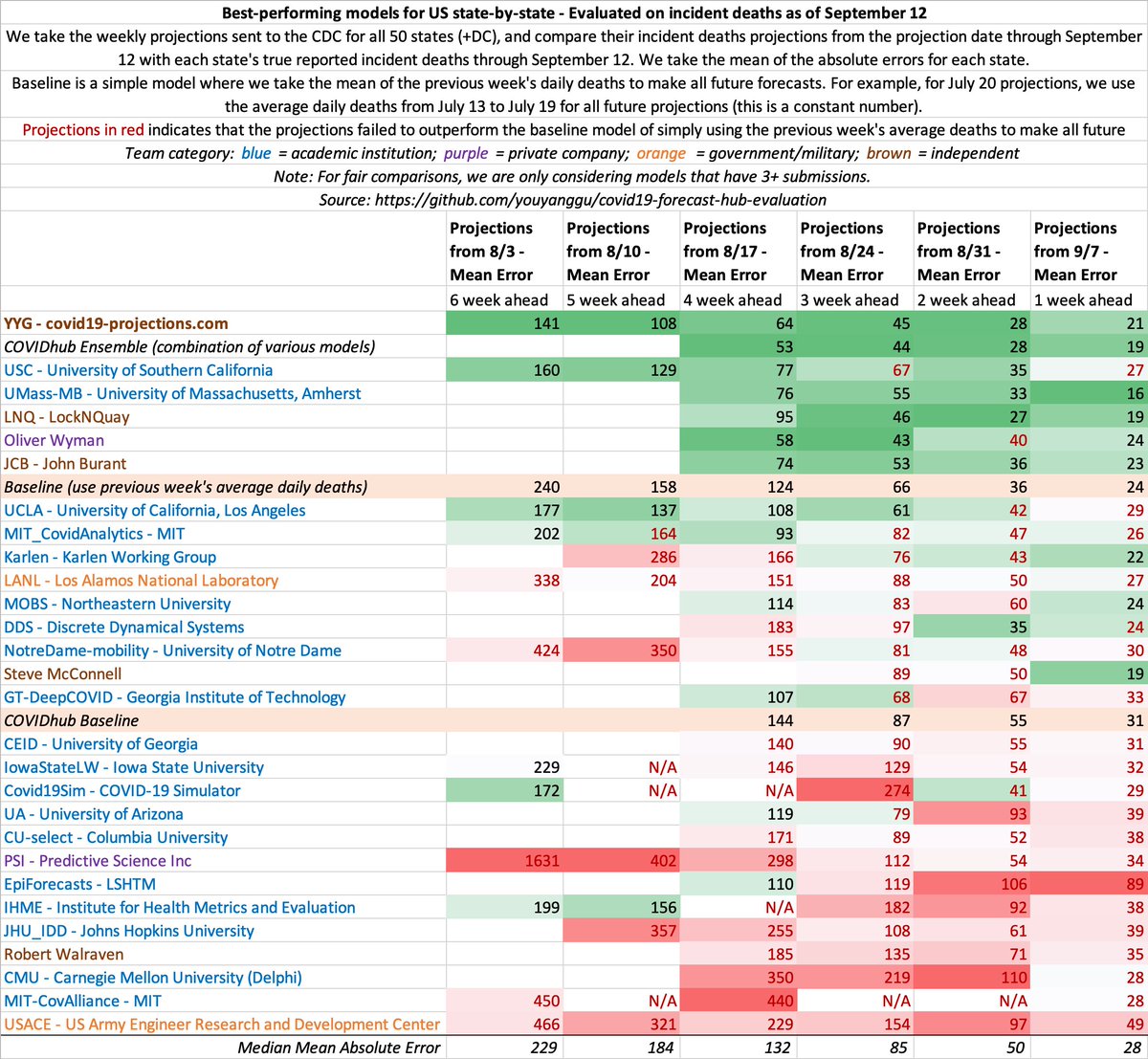
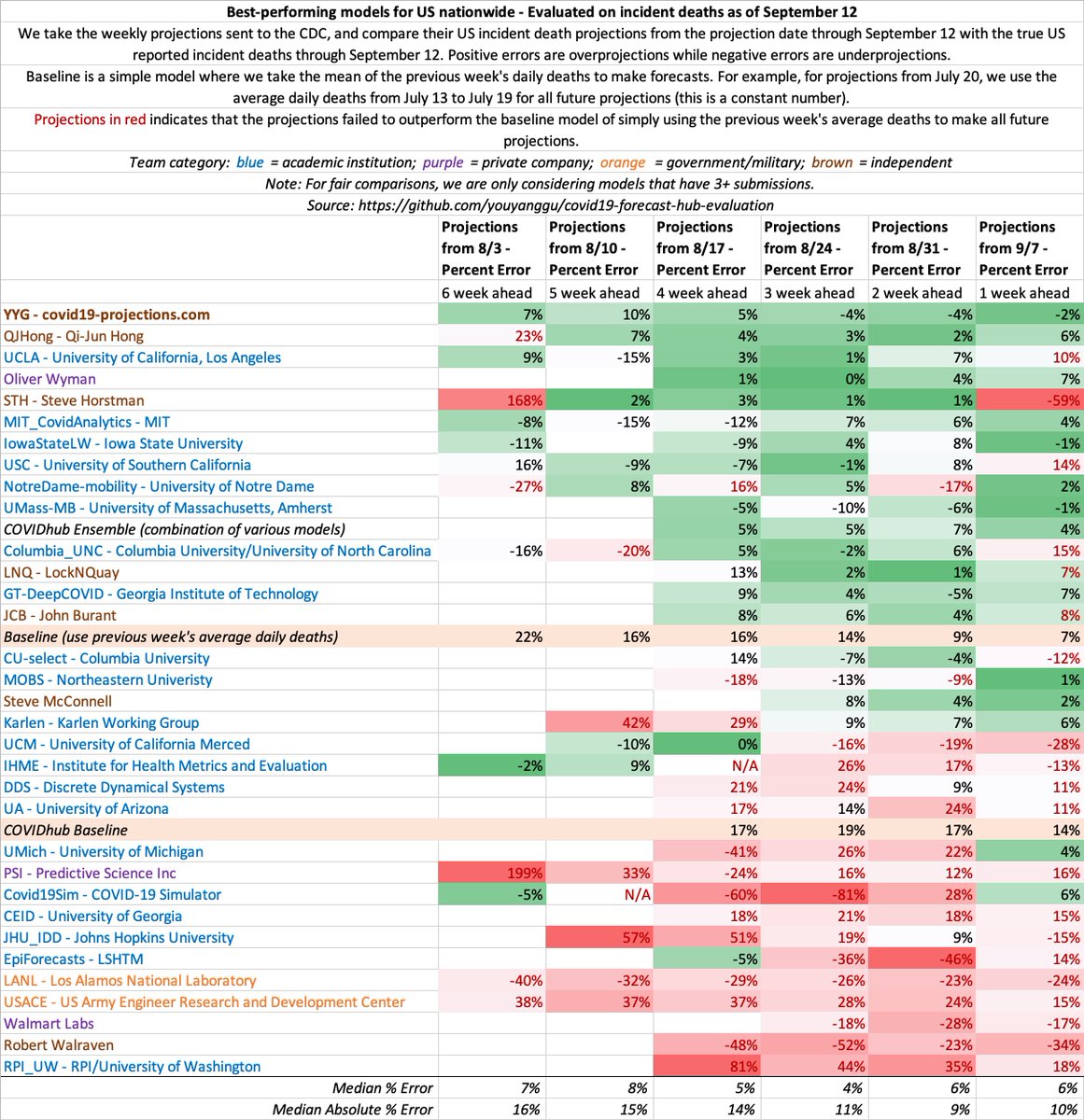
It appears that IHME now has COVID forecasts for 18 months in the future.
It’d makes more sense for them to focus on accurately forecasting 18 days in the future before focusing on 18 months.
It’d makes more sense for them to focus on accurately forecasting 18 days in the future before focusing on 18 months.
https://twitter.com/ct_bergstrom/status/1306110057461899265
• • •
Missing some Tweet in this thread? You can try to
force a refresh



